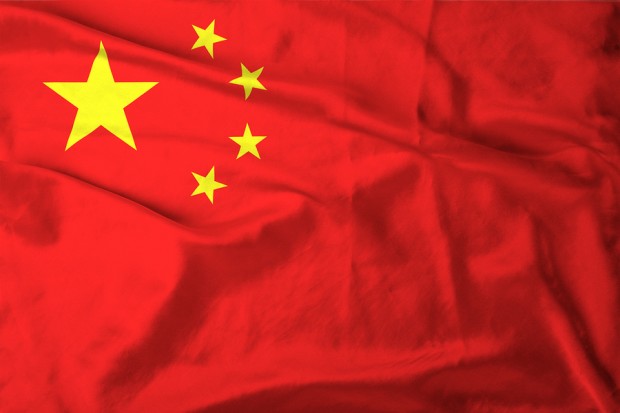Ping An Insurance (Group) Co., China’s second-biggest insurer, said profit rose 39.5 percent last year as stock-market rallies bolstered its investment returns and it accelerated overseas property purchases.
Net income climbed to 39.3 billion yuan ($6.34 billion), or 4.68 yuan a share, from 28.2 billion yuan, or 3.55 yuan a share, a year earlier, the company said in a statement to the Hong Kong stock exchange on Thursday. The profit compares with the 40.8 billion yuan average estimate by seven analysts surveyed by Bloomberg.
A 53 percent jump in the benchmark Shanghai Composite Index last year lifted the value of insurers’ equity holdings, as the Chinese government expanded liquidity to stem an economic slowdown. Ping An, with an overseas portfolio that already includes office buildings in London, also joins Chinese conglomerates buying international real estate that promises a long-term boost to investment returns.
“It’s in the interest of the insurance company to expand overseas” as its portfolio is still very concentrated in the domestic stock market, Edmond Law, a Hong Kong-based analyst with UOB-Kay Hian Holdings Ltd., said by phone. While property remains small in Ping An’s investments, it will grow faster” and make “a more meaningful contribution” to profit going forward.
Investment income rose 28.7 percent, the Shenzhen-based insurer said. Impairment losses from investments rose to 9.29 billion yuan from 1.62 billion yuan in 2013, according to the statement. Realized gains rose 329 percent. Investment properties fell 0.2 percent to 20.3 billion yuan as of Dec. 31, accounting for 1.4 percent of its portfolio.
Berlin Property
Ping An is vying with Fosun International Ltd., backed by Chinese billionaire Guo Guangchang, to acquire 18 buildings on Berlin’s Potsdamer Platz square, people with knowledge of the matter said. In January, the insurer bought Tower Place, an office property in the City of London financial district, for 419 million euros ($451 million).
Chinese insurers have been purchasing overseas properties to diversify away from equities after regulators two years ago granted them more freedom in how they allocate their cash. AnbangInsurance Group Co., a closely held Beijing-based insurer that bought New York’s Waldorf Astoria hotel, agreed to pay between $400 million and $500 million for an office building on Manhattan’s Fifth Avenue, according to people familiar with the transaction.
Ping An will expand the share of overseas investments, so far totaling more than 30 billion yuan, in its portfolio in the next three to five years to diversify risks and as expectations for further yuan gains abate, Chief Investment Officer Timothy Chan said at a briefing in Shanghai in August.
‘Strong’ Earnings
A 30 percent profit jump at Ping An Bank Co. also contributed to the earnings growth as the banking unit’s interest margins widened.
Ping An shares rose 0.9 percent to HK$88.50 on Thursday, extending this year’s gain to 12 percent.
Hong Kong-listed Chinese insurers are expected to post “strong” earnings growth for 2014, with an average 86 percent jump in net income from a year earlier due to gains in the stock market, Bocom International Holdings Co.’s Hong Kong-based analyst Li Wenbing wrote in a March 9 report.
Bigger rival China Life Insurance Co., scheduled to report earnings March 24, said in January that its profit last year may rise about 30 percent from the previous year, citing bigger investment returns.
Investment Returns
Chinese insurers’ investment returns surged 46.5 percent last year to 535.9 billion yuan, with the yield rising 1.3 percentage points to 6.3 percent, the China Insurance Regulatory Commission said in a Jan. 26 statement on its website.
Ping An’s net premiums earned rose 20.2 percent, according to the statement. New business value, which gauges the profitability of new life policies sold, rose 20.9 percent, the company said. Underwriting profitability of non-life insurance improved, with the combined ratio, which measures claims and expenses as a percentage of premium income, dropping by two percentage points to 95.3 percent from the previous year.
In a separate statement Thursday, Ping An said it will pay a cash dividend of 0.5 yuan per share and issue 9.14 billion bonus shares on a 10-for-10 basis.
–With assistance from Haixing Jin in Beijing.





















 Telematics and Trust: How Usage-Based Insurance Is Transforming Auto Coverage
Telematics and Trust: How Usage-Based Insurance Is Transforming Auto Coverage  From Skill to System: The Next Chapter in Insurance Claims Negotiation
From Skill to System: The Next Chapter in Insurance Claims Negotiation  Is Risk the Main Ingredient in Ultra-Processed Food?
Is Risk the Main Ingredient in Ultra-Processed Food?  New Texas Law Requires Insurers Provide Reason for Declining or Canceling Policies
New Texas Law Requires Insurers Provide Reason for Declining or Canceling Policies 







